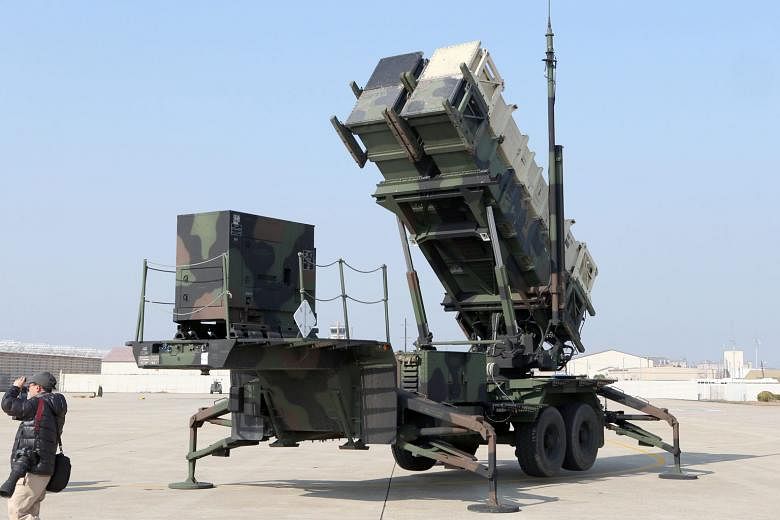SEOUL • The United States has temporarily deployed an additional Patriot missile battery in South Korea following North Korea's recent nuclear test and long-range rocket launch, US Forces Korea said.
The move came as China's Foreign Minister said Washington needs to proceed with caution on possible deployment of an advanced US missile defence system and not use this as an excuse to affect China's security.
"This deployment is part of an emergency deployment readiness exercise conducted in response to recent North Korean provocations," the US Forces Korea said in a press statement yesterday, referring to the temporary roll-out of a Patriot missile battery, which was flown from Fort Bliss, Texas, last week.
"Exercises like this ensure we are always ready to defend against an attack from North Korea," said Lieutenant-General Thomas Vandal, commander of the US Eighth Army.
The newly deployed Patriot battery is conducting ballistic missile defence training with the Eighth Army's 35th Air Defence Artillery Brigade at Osan Air Base, some 47km south of Seoul.
The brigade has its own two Patriot battalions.
One Patriot battalion is reportedly composed of four batteries.
The Patriot system is a high-velocity interceptor that defends against incoming ballistic and cruise missiles as well as aircraft.
Just hours after North Korea launched a long-range rocket that both condemned as a disguised ballistic missile test on Feb 7, South Korea and the US announced their intention to start discussions on deployment of the Terminal High Altitude Area Defence System (Thaad).
The Pentagon has since stressed that it would like the system to be deployed in South Korea "as quickly as possible".
A senior South Korean Defence Ministry official said last Friday that detailed discussions on the Thaad deployment would kick off as early as next week.
China and Russia argue that it would trigger an arms race in the region, with Beijing voicing its "deep concern" over the deployment.
Chinese Foreign Minister Wang Yi expressed Beijing's opposition to the deployment of the Thaad system to US Secretary of State John Kerry in Munich, China's Foreign Ministry said late last Friday.
Mr Wang "demanded the US side must act cautiously, not use the opportunity to harm China's security interests and not add a new complicating factor to regional peace and stability", the ministry said.
South Korea had previously declined to formally discuss bringing in Thaad in deference to the sensitivities of China, its most important trade partner.
But North Korea's continued missile testing and frustration with Beijing's resistance to imposing harsh sanctions on Pyongyang apparently triggered a change in Seoul's stance.
Mr Wang also repeated China's stance in Munich that sanctions "are not the aim" and that everyone should think of ways to restart talks on the North Korean nuclear issue.
"This completely accords with the interests of all sides, including China and the United States," added Mr Wang, according to his ministry.
AGENCE FRANCE-PRESSE, REUTERS

